Our History
Serving LaGrange Since 1865
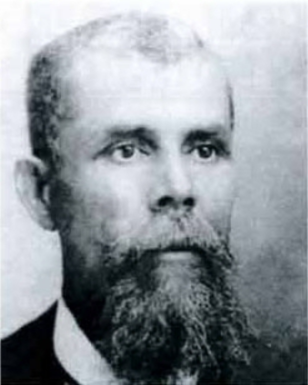
John T. King (1846–1926)
The Early Years
LaGrange's three main Protestant churches—First Baptist, First Methodist, and First Presbyterian—all had allowed free and enslaved Black people to worship in their churches, although physically separated from their white congregants. After the construction of a new sanctuary for the Methodist church in LaGrange in 1855, the congregation permitted people of color to conduct their own distinct services in the building's basement. However, Black congregants eventually desired to establish a church of their own.
Following the end of the Civil War in 1865, the Rev. John H. Caldwell and a handful of other white Georgia preachers sought to create a biracial demonination consisting of segregated churches in the state of Georgia as part of the Methodist Episcopal Church that had split over the issue of slavery in 1844. Southern congregations affiliated with the Northern church often were the benefactors of funds and other resources necessary to help establish new parishes. Later in 1865, Black congregants, with the assistance of Rev. Caldwell, completed a new church that was located on Hill Street. While the church's first minister was Rev. Peter Abram Heard, a white plantation owner, preaching duties were assigned to Rev. Frank Joseph, who was formerly enslaved. For the next several years, the ministers of this new congregation were white.
By 1870, the church had become a conservative alternative for people of color, compared to the more radical African Methodist Episcopal parishes in the LaGrange area. In 1873, John T. King, son of the esteemed Horace King, a formerly enslaved bridge builder and architect, joined the congregation. The minister and stewards quickly recognized John King's leadership gifts and gave him prominent positions and entrusted him with overall responsibilities, second only to the white minister.
Becoming Warren Temple
In 1882, Henry White Warren, a white Methodist bishop from Philadelphia, spoke to both the Black and white Methodist congregations in LaGrange and, in his honor, the Black church was named Warren Temple Methodist Episcopal Church. That same year, Warren Temple received its first appointed Black minister, Rev. S. C. Upshaw.
A Leading Role in Education
Warren Temple was the first church in the community to offer spelling classes to people of color and played a leading role in promoting Black education in the area. With financial support from the Methodist Freedman's Aid Society, John King, and fellow Black businessmen, the congregation convinced LaGrange's city council to provide municipal bond taxes to build a Black school in 1875. Classes were held in the church until the school's building, located at the end of Seminary Street and Hill Street, was completed in 1877 under the supervision of John King, who also served as school superintendent for several years. Initially called LaGrange Academy, the school was later named John King School and, finally, Hill Street School.
Warren Temple operated the school until 1903, when the parish relinquished control and rented the building to the new public school system in LaGrange. The school was later moved from its original location to East Depot Street and renamed East Depot High School, which was the pre-integration Black preparatory school in LaGrange's city school system.
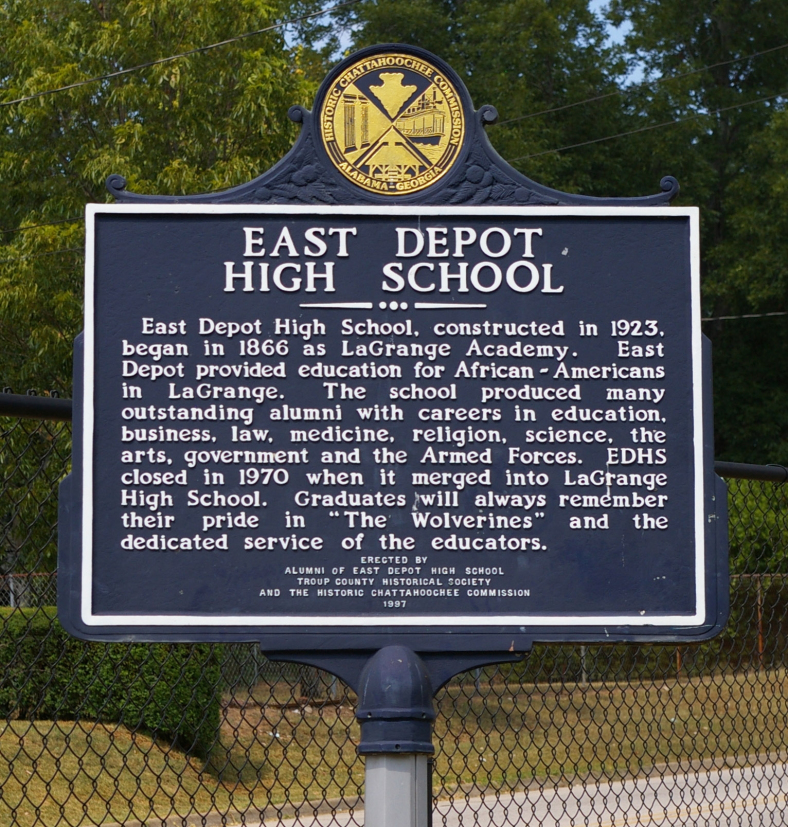
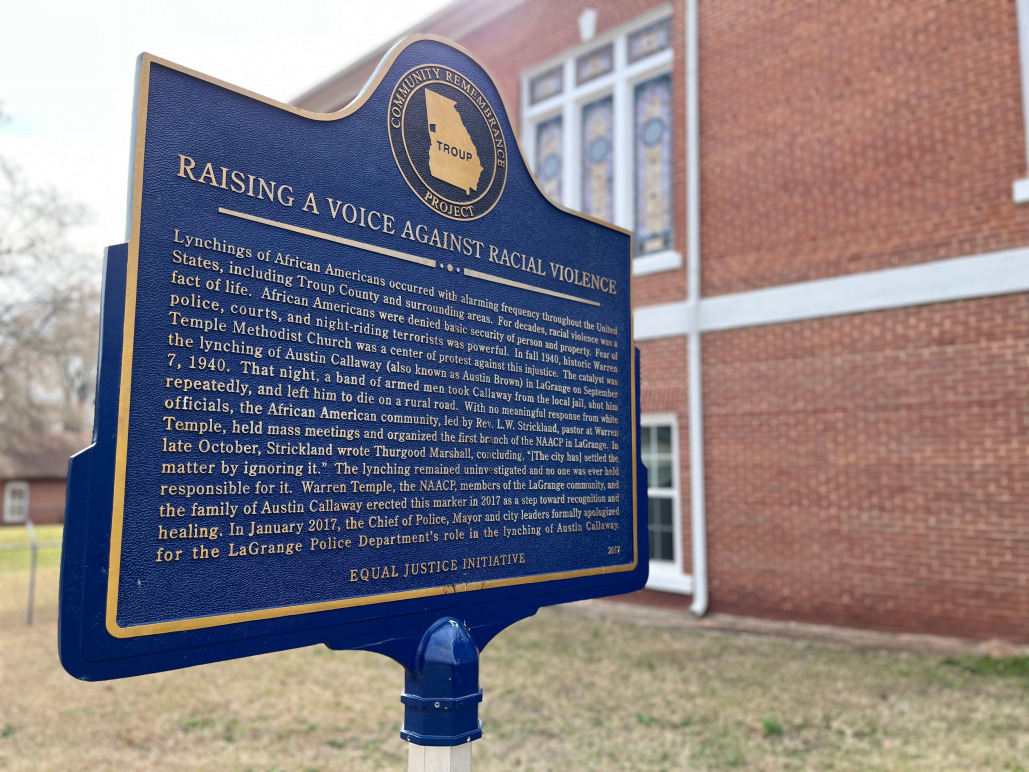
Substantial Edifices
The congregants of Warren Temple began a campaign in 1899 to replace the original wood-framed church building with a substantial one constructed of brick at the southern end of King Street. Again, under the guidance of John King, church members contributed their skills and labor to the construction process, which proceeded slowly. The cornerstone had been laid in 1903, and after five years the new building was completed. Within a few decades, a shift in population prompted the congregants to move the parish from King Street to its present location on East Depot Street. The new structure was built by John Moore, a church member and local builder, and construction was completed by December 1934. An atypical Beaux-Arts style differentiates it from many other churches built during this period.
Advocacy for Racial and Social Justice
In the fall of 1940, Warren Temple's pastor, Rev. L. W. Strickland, together with other pastors and leaders of the Black community met at the church to organize the first chapter of the NAACP in Troup County. This action came shortly after the lynching of Austin Callaway in LaGrange in September of that year. Local authorities had failed to investigate Callaway's brutal death or hold anyone accountable. Rev. Strickland and others mobilized the community in response, seeking answers that ultimately never came. Rev. Strickland wrote Thurgood Marshall in late October 1940 and observed that, "They have settled the matter by ignoring it." While the local NAACP never received any investigative results concerning the lynching, it remained active and worked on issues such as voting rights, adequate housing, and public health and education services. This chapter remains active today and holds an annual celebration at Warren Temple each January.
On 27 January 2017, as a result of community activism and dialogue, LaGrange mayor Jim Thornton and police chief Lou Dekmar, together with other municipal leaders, formally apologized for the lynching of Austin Callaway. This event, held at Warren Temple, garnered national attention as it was the first such event in the United States. On 18 March 2017, a permanent historical marker was erected by members of Austin Callaway's family, the Equal Justice Initiative (EJI), the Troup NAACP, Troup Together, and Warren Temple. The marker lamented Callaway's lynching and recognized Warren Temple's role in responding to it, and the ceremony featured remarks from Rev. Vincent Dominique of Warren Temple, EJI founder Bryan Stevenson, Mayor Jim Thornton, leaders from First Baptist Church of LaGrange, the Troup NAACP, Troup Together, and the families of the late Rev. L. W. Strickland and the late Gene Bowen, whose family had found and rushed the mortally wounded Callaway to the hospital, where he died.
Recent History
In 2003, the congregation, led by trustee Jerry Heard, undertook an extensive modernization of the church as no major changes had been made to the then seven-decade-old structure. With $165,000 in funds raised by church members as well as a grant from the Callaway Foundation, the main floor was rebuilt for the sake of integrity and the sanctuary's original appearance was restored to pay homage to the parish's history. A new exterior ramp in combination with a handicapped lift increased accessibility for individuals with disabilities. Another renovation in 2010, led by trustee chair Rashad Little, was completed to update the fellowship hall and kitchen. This project was funded by husband and wife George R. Moore Sr. and Ruth H. Moore, both dedicated, long-time members of Warren Temple. Remodeling efforts included new stainless-steel appliances, a buffet-style service table, and new carpet.
A historic home at 406 East Depot Street was purchased by Warren Temple in 2014 in order to develop a future family life center. The property was owned by Horace Ward, who was appointed by President Jimmy Carter to a federal judgeship on the US District Court for the Northern District of Georgia, thereby making Ward the first African American to sit on the federal bench in Georgia. In August 2023, Warren Temple sold the property to the City of LaGrange, which has plans to renovate the property and transform it into a museum that will be part of an African American history trail linking several historic sites in the city.
In 2020, under the leadership of Rev. Dr. Deborah Holloway, Warren Temple responded to the COVID-19 pandemic by halting in-person services and leveraging various technologies such as Zoom to conduct worship, hold Sunday school classes, and meet together to govern parish affairs. Later that year, Rev. Carl Von Epps Jr. became senior pastor and on Easter Sunday in 2021, the congregation began holding so-called "Parking Lot" church, which was the first stage of a plan to slowly and safely return to the church building. By Mother's Day of 2021, with several safety protocols in place, in-person services resumed inside the sanctuary.
Two years later, the City of LaGrange and Troup County experienced severe weather that caused damage to Warren Temple's original stained glass windows. A project, with fundraising led by Dr. George Baker Jr., was undertaken to replace or upgrade nearly all of the church's windows and frames. By the following year, Warren Temple applied for and was awarded a competitive $100,000 matching grant from the National Fund for Sacred Places, which is an organization that supports historic and architecturally significant houses of worship. At this juncture, the congregation is conducting a capital campaign to raise funds that will preserve the parish structure so that the church can serve generations to come.
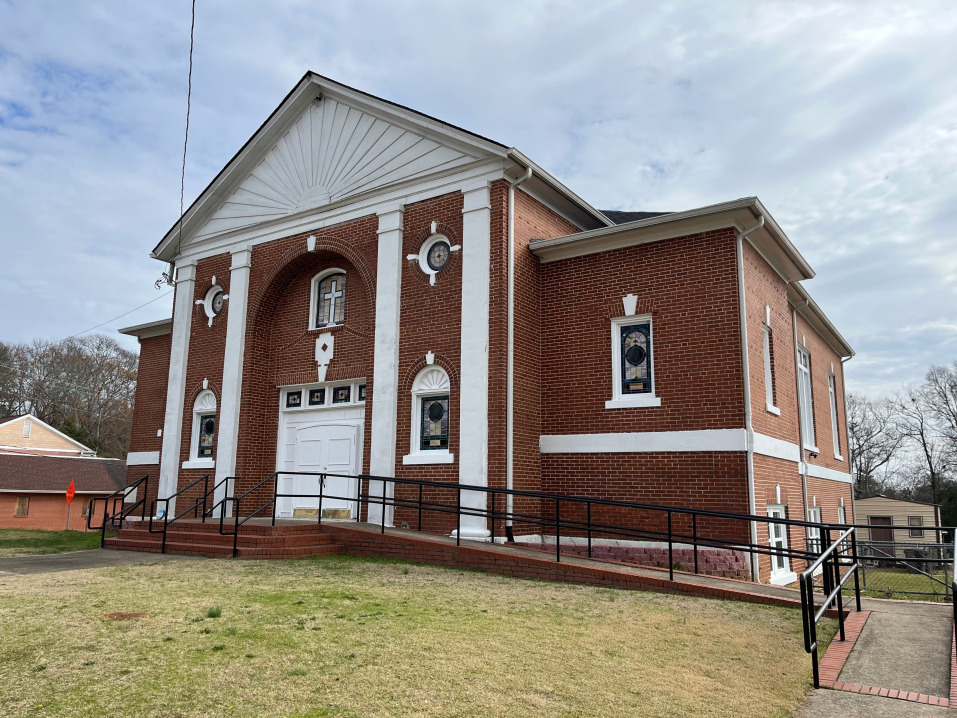
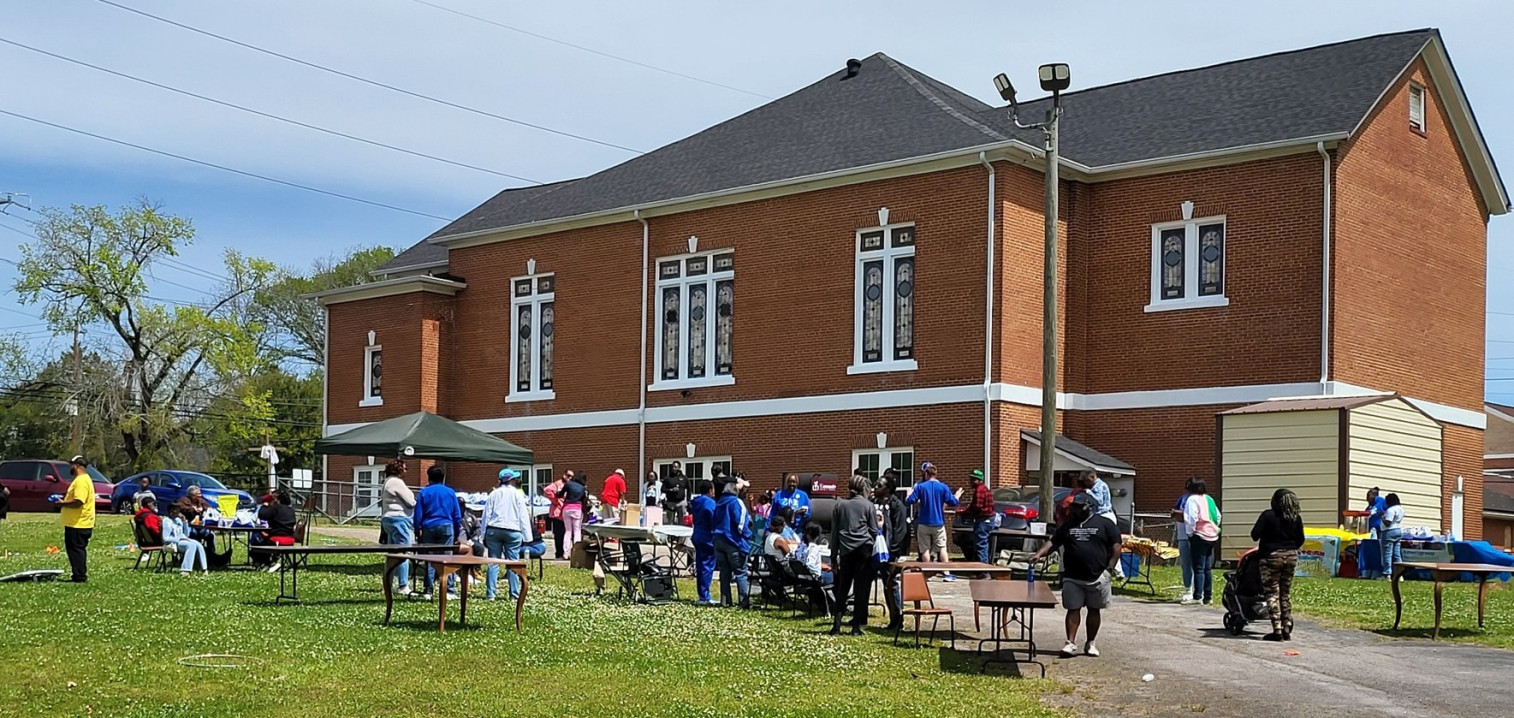

Prominent Members of Warren Temple
Following are some of our congregation's prominent members, both past and present:
- Dr. George Baker Jr. – First African American dentist in LaGrange
- Rev. Carl Von Epps Jr. – Current senior pastor of Warren Temple. Former Democratic member of the Georgia House of Representatives from 1992 to 2014. First African American to serve in his district
- Jerry Heard – First African American fire chief of Troup County
-
Ethel W. Kight – Troup County's first and only Jeanes superintendent—part of the nationwide Jeanes Foundation program that helped fund education for Black schools—until integration in 1970. From 1970 until her retirement in 1977, she was curriculum director for Troup County's school system
- John T. King – Son of the esteemed Horace King, a formerly enslaved bridge builder and architect, From the 1890s to the 1920s, King served as a trustee for Clark College (predecessor institution of Clark-Atlanta University), and he built the Negro Building at the Cotton States and International Exposition held in Atlanta in 1895
- George R. Moore Sr. – First African American appointed to the Troup County Board of Tax Assessors
- Ralph Paige – Nationally prominent former executive director of the Federation of Southern Cooperatives / Land Assistance Fund, an advocacy organization for Black farmers that grew out of the Civil Rights movement
- Benjamin T. Wood – First African American doctor to practice in LaGrange
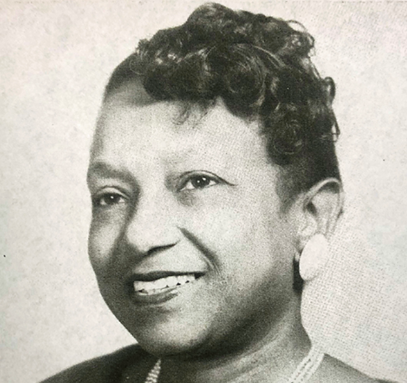
Ethel W, Kight (1909–1990)
Below are the known pastors
who have served Warren Temple
Year Appointed | Pastor | Year Appointed | Pastor |
1874 | Rev. H. R. Parmenell | 1955 | Rev. Jonathan Jackson |
1877 | Rev. J. H. Owens | 1958 | Rev. Dr. Thomas P. Grissom Jr. |
1880 | Rev. George Stanley | 1959 | Rev. Ben Smith |
1883 | Rev. S. C. Upshaw (1st term) | 1961 | Rev. W. B. Leidy |
1887 | Rev. J. B. L. Williams | 1962 | Rev. Clayton T. Dudley |
1891 | Rev. C. K. Wright | 1963 | Rev. Calvin C. Lawton |
1892 | Rev. John Watts | 1964 | Rev. Charles Lee |
1893 | Rev. E. E. Kirby | 1965 | Rev. Charles H. Wilhite (1st term) |
1895 | Rev. S. C. Upshaw (2nd term) | 1967 | Rev. Robert Williams |
1898 | Rev. A. N. Jackson | 1968 | Rev. Henry Joyner |
1902 | Rev. John Crolly | 1969 | Rev. Charles H. Wilhite (2nd term) |
1904 | Rev. J. D. Jenkins | 1972 | Rev. T. C. Simmons |
1907 | Rev. F. R. Bridges (1st term) | 1977 | Rev. Thomas Wallace |
1908 | Rev. W. H. Brown (1st term) | 1978 | Rev. Ronald Henderson |
1909 | Rev. W. V. Daughtery | 1979 | Rev. L. Charles Stovall |
1912 | Rev. G. H. Lennon | 1981 | Rev. O. B. Davis |
1914 | Rev. F. R. Bridges (2nd term) | 1982 | Rev. Mack Davis |
1917 | Rev. J. A. Richie | 1983 | Rev. James Gresham |
1919 | Rev. R. D. Cooper | 1987 | Rev. Phillip M. Armstrong |
1920 | Rev. M. M. Jefferson | Aug 1988 | Bishop L. Scott Allen (Interim) |
1925 | Rev. W. A. Johnson | Jan 1989 | Rev. Derrick R. Rhodes |
1926 | Rev. F. R. Bridges (3rd term) | 1992 | Rev. James E. Reed |
1927 | Rev. C. W. Prothro | 1997 | Rev. Martha E. Randall |
1932 | Rev. E. W. McMillian | 1999 | Rev. Bettye Holland |
1935 | Rev. E. O. Burns | 2005 | Rev. Dr. Aubrey M. Thompson |
1938 | Rev. L. W. Strickland | 2010 | Rev. Dr. Sherry Austin |
1944 | Rev. T. S. Robinson | 2013 | Rev. Vincent L. Dominique |
1945 | Rev. W. H. Brown (2nd term) | 2017 | Rev. Dr. Deborah Holloway |
1951 | Rev. Lovelace | 2020 | Rev. Carl Von Epps Jr. |
1953 | Rev. E. H. Everett |


